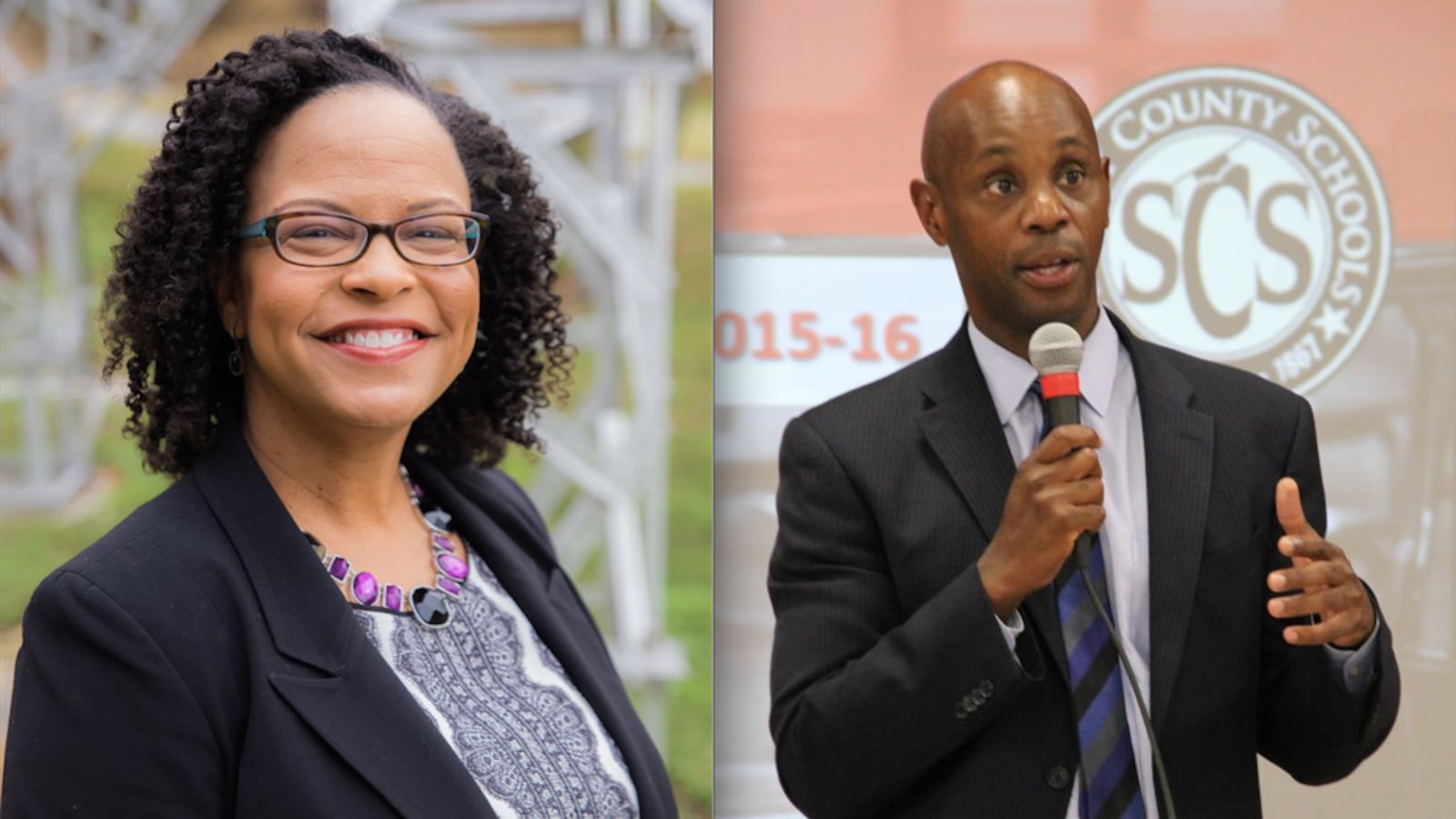In a significant act of collaboration, a Memphis school being transitioned to Tennessee’s Achievement School District could become an Innovation Zone school operated by Shelby County Schools but funded by the state-run district.
The possibility of changing course again for Raleigh-Egypt Middle School was presented Tuesday evening to school board members by Superintendent Dorsey Hopson. Hopson reported that he’s been talking with ASD Superintendent Malika Anderson about how best to serve students of the school caught in the middle of two plans for their education.
Hopson said he’s not ready to make a formal recommendation but wanted to make the board aware of the discussions and get their feedback. Board members immediately expressed reservations about a changeup. But no matter the outcome, the discussions appear to mark a shift in tone for two districts that have become combative in recent years in the quest to turn around low-performing schools in Memphis.
The recent discussions were an outgrowth of two competing plans in two buildings for the same students attending Raleigh-Egypt Middle.
Last December, the state-run district announced it would take control of the school and authorized Philadelphia-based charter network Scholar Academies to reopen it as a charter this fall.
In an effort to retain students, the Shelby County school board responded last month by voting to reconfigure nearby Raleigh-Egypt High School for grades 6-8, effectively absorbing the middle school to create another option for area families and keep them within Shelby County Schools.
But under the third collaborative plan, Hopson said, Shelby County Schools would have full authority to implement its turnaround model via its Innovation Zone, paid for with philanthropic dollars intended for Scholar Academies.
“Honestly, that type of collaboration, that type of synergy, that would be quite frankly something to behold,” said Bobby S. White, the ASD’s new chief of external affairs, following the school board meeting. Still, he said, “it very well could be that the original plans will be stuck with.”
Board members weren’t enthused about reversing course at this point, since the district already has begun plans to add middle school grades to the high school.
“Although I appreciate the offer, I feel like we need to make sure that we are moving forward with the plan,” said board member Stephanie Love, whose district includes both schools. “I personally feel like this would jeopardize everything we have worked toward.”
“If (the ASD) have resources, we can use it for Raleigh Egypt Middle/High if it’s really about the children,” she added.
Board chairwoman Teresa Jones questioned the timing.
“I just don’t know why this wasn’t an option months ago when we pleaded to keep the school with Shelby County Schools,” she said.
Board members feared another change in plans would heighten confusion for families, but White maintained it would alleviate confusion in the long run. “It would be more confusing to be serving the same grade level of kids in two schools on the same campus,” he said.
When the board voted to reconfigure grades at Raleigh-Egypt High, it was its first outright attempt to help families bypass the ASD. The action prompted a rebuke from the Tennessee Department of Education, which worked with the legislature to create the ASD in 2010 as a tool to address chronically struggling schools.
Nationally, Scholar Academies recently cited financial constraints when the operator pulled out of opening another charter school in Philadelphia. Hopson said during the meeting that the ASD has expressed concerns about Scholar Academies, but White said the state-run district is fully prepared to proceed with the charter conversion if Shelby County Schools chooses not to move forward with discussions.
Officials with Scholar Academies in Memphis did not immediately respond to requests for comments.
Both Hopson and White characterized recent discussions between the two districts are a step forward.
“Irrespective of who operates the school, we want to do what’s best for children,” Hopson said.
“If not here, then into the future, you’re going to see more synergy,” White said. “You’re going to see more collaborative efforts because, at the end of the day, I don’t care what name is on the door. We just want to make sure kids are being given a quality education.”


